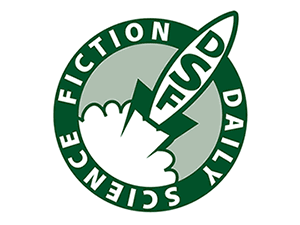
Game Theory
by Stephen Lawson
"What sort of amateur nonsense is this?" Anders asks. He holds my glasses in his left hand between thumb and forefinger.
He has the audacity to call me an amateur. Me. I take chess more seriously than any player who's made it to the world championships since Garry Kasparov.
"It's Moore's Law," I say through bloodied lips. "Chess is a fairly simple game."
It's simple enough to fit Bobby Fischer's ghost alongside Kasparov on a memory chip inside the frame. The processor is more powerful than any supercomputer from the 1980's, and the other side of the frame has a five-hour power supply. The camera, which easily picks up the black and white contrast of the board and pieces, doesn't use much power. The heads-up-display that feeds me each move is the biggest drain.
"You've been wearing these glasses for the last year," Anders says. His friends, much stronger than he, hold me by the arms. I knew Russians took chess seriously, but this Norwegian took a full minute of beating me senseless before the rage went out of his eyes. Now he just wants to talk. "They're in every picture of you, even when you aren't playing. I guess that is some small measure of your dedication."
"Small?" I say. "Those cost me one hundred thousand dollars."
"You paid too much," Anders says, "but you haven't paid enough yet."
He hits me again, and the world goes fuzzy.
"Perhaps we should fix you up," Anders says. "Perhaps we should play the full twelve games. I'd love to see how you perform without your little gadget here. I think people would lose interest though. There's no entertainment in a massacre."
"You're the amateur," I say. "You don't know what a trailer park smells like. This is a game to you, to impress your daddy."
"What is to you, then?"
"It's the only ticket my sister has out of Hannibal."
"Hannibal--Ohio? That's right, I remember. Your town with a blinking caution light, a dam, a post office, and not much else."
His dad's probably on a yacht somewhere with his mistress. Mine's in a coffee can on a shelf in the kitchen of a doublewide.
His mom's on the cover of Elle. Mine works at a gas station across the river in New Martinsville.
"Tell me though," he says. "I'm curious. How did you even get a hundred thousand dollars to buy these?"
No point in lying. He might even kill me, here, in the alley behind the Old Curmudgeon microbrewery. The truth will feel good.
"I'm good at game theory," I say. "A lot of dope comes across the bridge from New Martinsville to Hannibal."
"And?"
"And I made sure two sides of a dope deal didn't see eye to eye. Neither of the prisoners walked out of their dilemma."
"Perhaps you are a professional," Anders says, "just not at chess."
It's then that my night takes a truly bizarre turn. Anders puts his right hand to his right eye, and pulls it from the socket.
"You think you know something about dedication--" he asks, "about devotion to your art? I was fifteen when I pulled out my own eye.
Father made me do it. He said Odin had done the same for knowledge."
Anders tucks my glasses into the pocket of his blazer and pulls out a microfiber cloth.
"Holy--" I say.
I thought I had a speck in my own eye.
"Exactly," Anders says. He polishes the lens of his eye. "As I said, you paid too much for your device. I've had this version for two years now. It connects directly to my optic nerve, and, I might add, is waterproof. Your glasses do not appear to be so."
"Your psych profile was expensive, too," I say. "Good thing I didn't have to pay for it."



